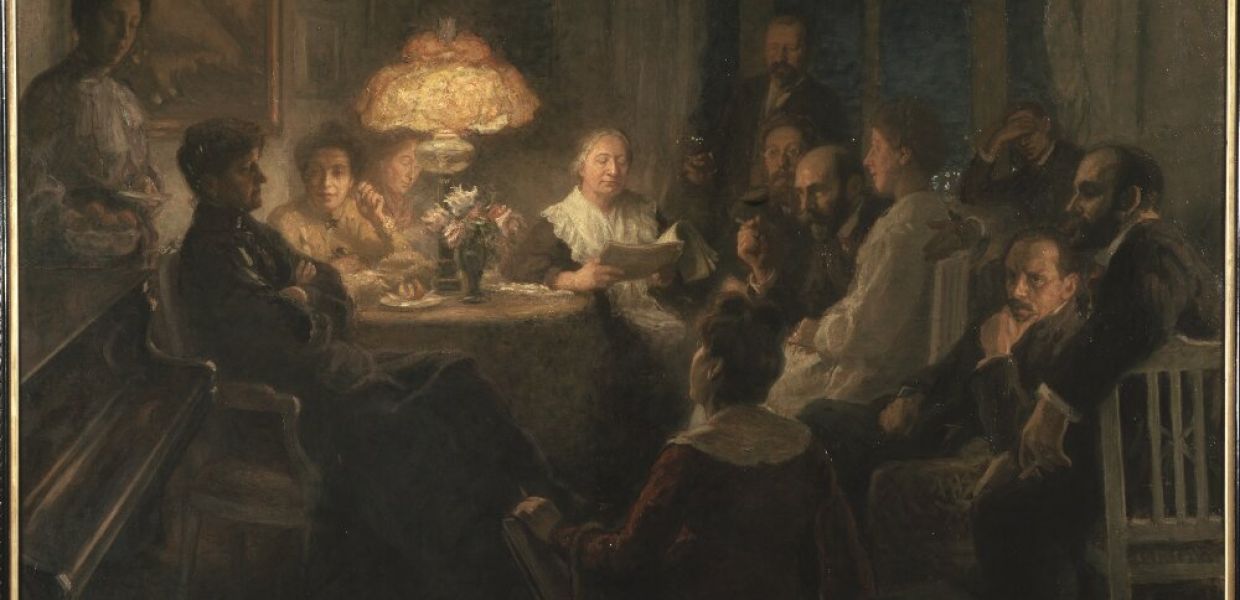Judaica Europeana 2.0: the aggregation platform for Jewish heritage content to Europeana
Pavel Kats looks back on the accomplishments of the Europeana Generic Services project Judaica Europeana 2.0, and discusses how the project consortium has renewed the aggregation of Jewish heritage content to Europeana.

- Title:
- Friends
- Creator:
- Hanna Hirsch-Pauli
- Date:
- 1900/107
- Institution:
- Nationalmuseum
- Country:
- Sweden
- Copyright:
- Public Domain
From Judaica Europeana to Judaica Europeana 2.0
Judaica Europeana, which ran from 2010 to 2012, was one of Europeana’s first aggregation projects. It aimed to add content from Jewish heritage institutions in Europe, the United States and Israel to Europeana, and in total digitised and uploaded 3.7 million items to the platform.
Recognising the need to continue the aggregation of Jewish heritage content into Europeana, in 2018 the Jewish Historical Museum (Amsterdam) established the project Judaica Europeana 2.0 under the Europeana Generic Services funding programme. This project aimed to renew the aggregation of Jewish digital heritage materials under the Judaica Europeana aggregator, and consisted of five project partners: the coordinator, the Jewish Historical Museum (Amsterdam); the Judaica Division of the University Library in Goethe University (Frankfurt); the Alliance Israelite Universelle (Paris); Semantika (Maribor, Slovenia) and the Michael Culture Association (Bruxelles).
The aggregation platform for Jewish heritage content
Judaica Europeana 2.0 introduced the aggregation platform for Jewish heritage content. This flexible and innovative platform integrates several open-source components to support a wide variety of incoming data sources and map them to the Europeana Data Model. All the content originally supplied by Judaica Europeana project has been re-ingested and re-published on Europeana.
In addition to the re-ingestion of older content, as part of this project a significant amount of new records have been ingested. In total, the project has provided more than 240,000 high-quality metadata and digital heritage records of different items (including books, photographs, historical documents, ephemera) spanning various topics of Jewish history and culture in Europe. A set of new enrichment scenarios for the Judaica domain (most notably, one based on YIVO's Encyclopedia of Jews in Eastern Europe) has been designed and implemented by the project.
Finally, the project has established a set of networking and community building activities which aim to sustain not only the aggregated content, but also the network itself as the hub for the development of further Jewish digital heritage initiatives in Europe and beyond.
Future plans
Judaica Europeana 2.0 has been a foundational project. It laid the infrastructure for aggregation of content from a wide range of Jewish heritage sources. It also supported semantic enrichment and mapping of this content to semantic standards (such as the Europeana Data Model) and preparing for new tools and apps which aim to engage users with Jewish heritage, culture and history.
Based on the foundations laid by the project, the Judaica Europeana network of content partners is planning to create a number of projects, software services and funders to promote Jewish heritage globally. Some projects are already funded or selected for funding, such as Jewish History Tours, a recent Europeana CEF funded project, which will create a network of heritage-based mobile guided tours in several European cities - keep an eye on Europeana Pro news for more information!
Get involved
Judaica Europeana 2.0 has been just a beginning. Follow the Jewish Historical Museum to find out more and work with us to innovate in Jewish cultural heritage. You can also join New Frontiers for Jewish Digital Heritage, the concluding event of the project today, January 26, and explore Jewish heritage content on Europeana.
This post was updated on 18 January 2022 to clarify that the Jewish Historical Museum established and led this project and describe the roles of involved organisations more accurately.

